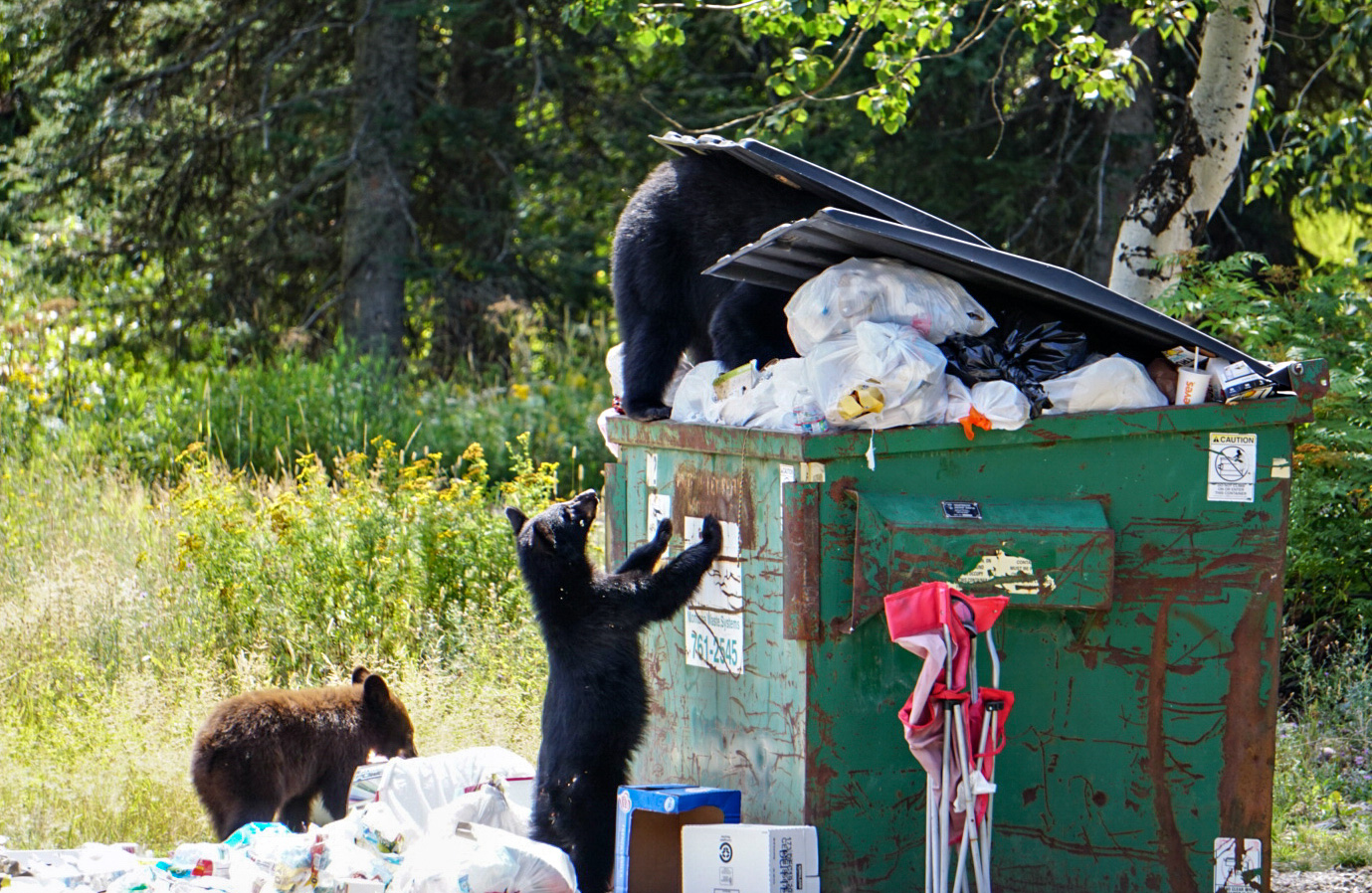Nonprofit Organization Launches Bear Smart Community Resource Fund
People and Carnivores supports community projects aimed at preventing human-bear conflicts through funding, consulting and educational materials
By Micah Drew
Over a one-week period in June 2022, Montana Fish, Wildlife and Parks (FWP) bear management specialists captured and killed four bears involved in human-bear conflicts across Northwest Montana.
Two of the bears were grizzlies that had been frequently accessing chicken coops and unsecured garbage. The other two were black bears that had been frequenting residentials areas — one which had also acquired a taste for local poultry.
While data for 2022 is still being tallied, wildlife officials have seen a marked uptick in reported bear conflicts in recent years, leading to increased interventions including capture, relocation and, in some cases. euthanization. In 2021, former FWP Grizzly Bear Management Specialist Tim Manley reported his office received roughly 300 reports of bear-related conflicts, among the busiest of his 37-year career. That year FWP made 33 captures of 32 individual bears — the highest number of individual bears the department has captured since keeping tally in 1993 — nine of which had to be killed as management removals.
“I have said it many times before,” Manley said following the management death of four food-conditioned grizzlies in the North Fork, “killing bears is the worst part of my job. We try to avoid having to do it but when bears become very food-conditioned and start causing property damage and breaking into vehicles, trailers and cabins, those bears are removed.”
To help communities in western Montana prevent human-bear conflicts, and by extension minimize future bear deaths, the Bozeman-based nonprofit People and Carnivores has launched the Bear Smart Community Resource Fund to support local-led projects designed to keep people and property safe and keep bears out of trouble.
“Across the state there’s bears moving into places where there haven’t been bears before and lots of people moving into places there haven’t been people before,” said People and Carnivores Program Coordinator Rosie Costain. “As residential areas and development continue to expand in the region, there’s a lot more opportunity for conflict. Especially for new Montana residents, we need to educate them on how to coexist with bears.”
The Bear Smart resource fund is intended for community groups, neighbor associations or towns in western Montana, the Greater Yellowstone region and Northern Idaho interested in developing projects that will minimize potential bear conflicts. Projects can include purchasing bear-resistant equipment, developing solution-oriented community plans to prevent the conditioning of wildlife to human food and waste, and hosting events to share bear safety information.
Some communities in the Flathead Valley have made recent strides to minimize bear conflicts. Last year, Whitefish began a city-wide rollout of bear-resistant garbage containers after changes to city ordinances related to garbage storage were prompted by what FWP bear and mountain lion manager Erik Wenum characterized as “hundreds of incidents” of bears in town. Up in the North Fork, locals recently launched the Polebridge Bear Smart Program, an initiative that organizes the annual Polebridge Bear Fair and targets seasonal workers with training tutorials on how to safely use bear-deterrent pepper spray and offers an animal-resistant trash container loaner program.
Costain said People and Carnivores worked with local officials in Virginia City to create low-cost bear safe community practices and are using that as a model to expand the program to more areas in Montana. The program has also been proposed to the Interagency Grizzly Bear Committee, which would create a framework of steps for communities to follow to earn a Bear Smart Certification.
The community aspect of the Bear Smart Fund is the emphasis, Costain said, adding that while individual efforts are encouraged, they only carry so much weight in a residential area.
“Conflict prevention usually happens one project at a time on one property,” Costain said. “If a bear is going to go through a residential area, it’s one thing if you’ve secured your trash and put away your bird feeder, that’s wonderful, but it doesn’t really matter if your neighbor has their bird feeder out and no electric fence around their chickens.”
“The Bear Smart Community Resource Fund is unique because it will help entire communities build a sustainable program,” she added. “Ideally, with a community-wide effort, if a bear wanders down a street, there won’t be anything available to it and it will mosey along its way.”
The Bear Smart Community Resource Fund is funded at $50,000 for 2023, with additional resources likely for 2024 and 2025. There are no pre-determined resource levels for projects — instead funding, support and materials provided will be prioritized based on the extent that residents and local officials plan to integrate bear conflict prevention across their community.
The Bear Smart Community Resource Fund is made possible with support from The Volgenau Foundation. Applications will be accepted on a rolling basis throughout 2023, though early inquiries are encouraged. For more information on the program and how to apply, visit: peopleandcarnivores.org/bearresources.